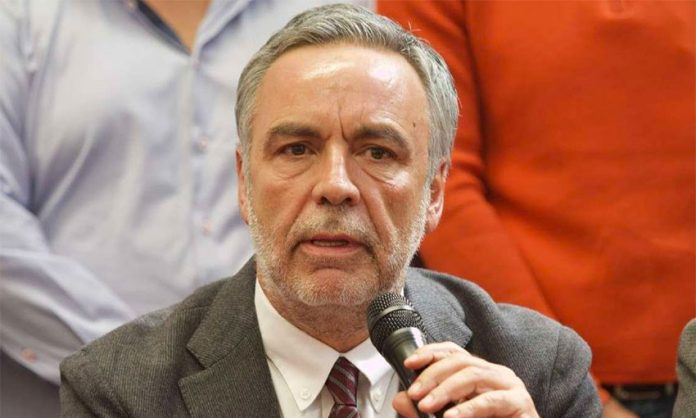A proposal from Mexico’s ruling party to allow national statistics agency personnel to enter people’s homes as part of efforts to measure their wealth has been met with widespread and firm resistance.
Alfonso Ramírez Cuéllar, national president of the Morena party, announced a proposal on Monday that seeks to give the statistics agency, Inegi, greater powers to measure wealth in Mexico. Ramírez said on Twitter that the aim was to “find out the true dimensions of inequality …”
He said that Inegi must be able to enter people’s homes to review their “real estate assets” and have access to their tax records and bank accounts “without any legal impediment.”
Under the proposal, the autonomous federal department would report on the assets held by all Mexicans every two years. Ramírez stressed in an interview that the intent was not to expropriate assets from the nation’s wealthy but merely to get a better picture of the distribution of wealth in the country.
But the proposal appears doomed to fail after President López Obrador – Morena’s founder – rejected it at his morning news conference on Tuesday.
“I don’t believe it’s right. The wealth of business people and all Mexicans has to be kept private,” he said, adding that only public servants have the obligation to declare their assets.
“I don’t believe that this proposal is advisable. So that there is not so much inequality, the best thing is for the government to help the majority of Mexicans to slowly ascend the social ladder,” López Obrador said.
“Corruption is the main cause of economic and social inequality. If there is no corruption, there won’t be inequality and there won’t be this large accumulation of resources in the hands of a few while the majority lacks the most essential things. But this [isn’t achieved] by … demanding that people say how much they have,” he said.
Ramírez’s proposal was also rejected by a range of people in academia, economics, business and politics.
National Autonomous University (UNAM) law academic Diego Valadés said that if the proposal became law, “the Mexican state would become a police state.”
“I prefer to believe that the proposal is an unpremeditated mistake,” and not a planned attack on democracy, he told the newspaper El Financiero.
Another UNAM law academic, María del Pilar Hernández, said the proposal is “unconstitutional” and agreed that it is reminiscent of something a police state would do. Neither the constitution nor federal laws allow for Inegi to be turned into an auditor, she said.
Gabriel Casillas, president of the economic studies committee of the Mexican Institute of Financial Executives, expressed doubt that allowing Inegi to measure people’s wealth would help to reduce inequality, while Raymundo Tenorio, an economist, raised privacy concerns.
The leadership of three opposition parties – the Institutional Revolutionary Party, the National Action Party and the Democratic Revolution Party (PRD) – described Ramírez’s proposal as a distraction and an authoritarian move.
“What Morena is seeking to do is divert attention from national problems and criticism of the president,” said Ángel Ávila, national president of the PRD.
“Granting Inegi the powers of a Soviet commission to assess the wealth of all people would involve perverting … Inegi and letting it rot,” he said.
Before López Obrador’s denunciation of the proposal, Morena’s leader in the Senate stressed that the proposal had not been submitted to Congress and that the lawmakers of the ruling party would look at it with caution.
“As a majority we will act with political responsibility and prudence,” Ricardo Monreal said.
On Tuesday afternoon Ramírez said there was never any intention that Inegi representatives would enter people’s homes to gather the data. The information needed is already in the Ministry of Finance databases, he said, vowing to carry on with his proposal by seeking a broad consensus for it, including that of the Morena party.
Source: Reforma (sp), El Financiero (sp)
